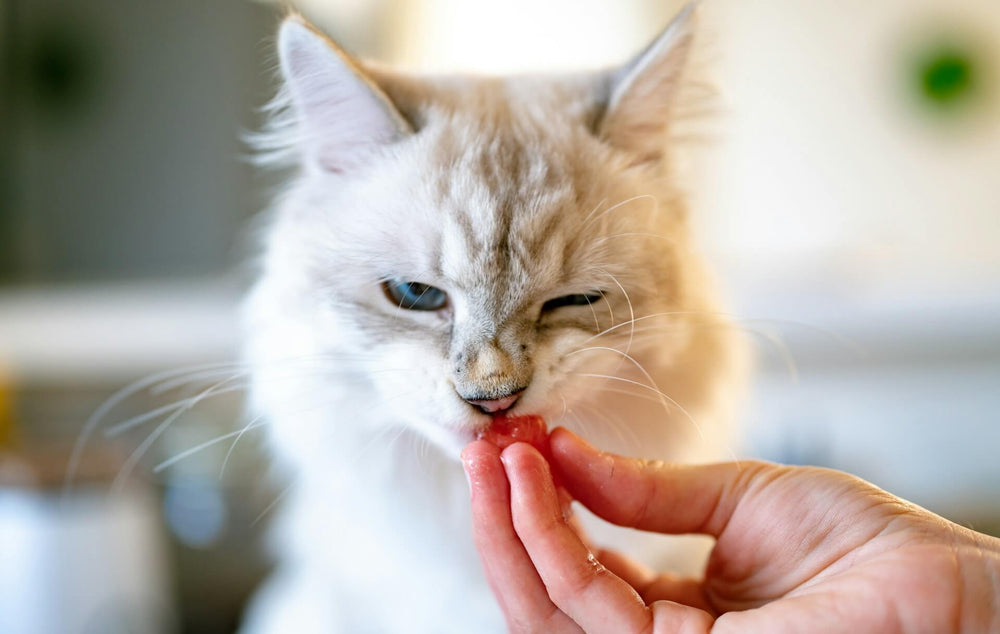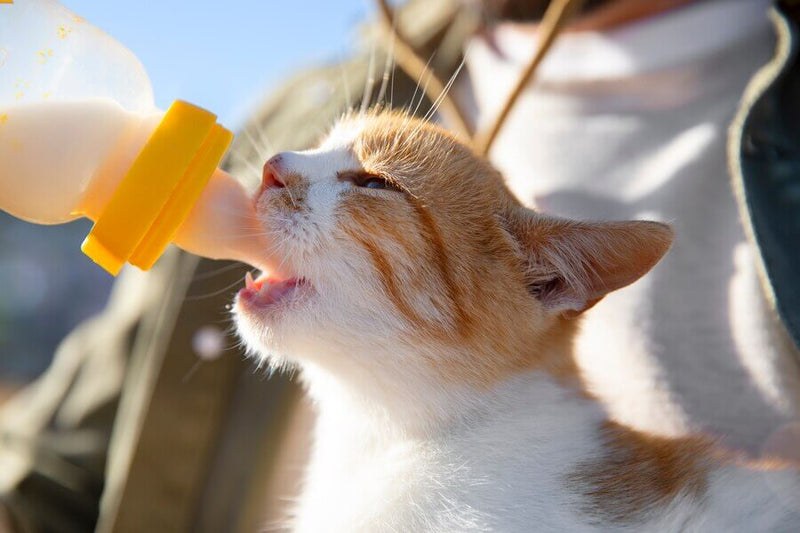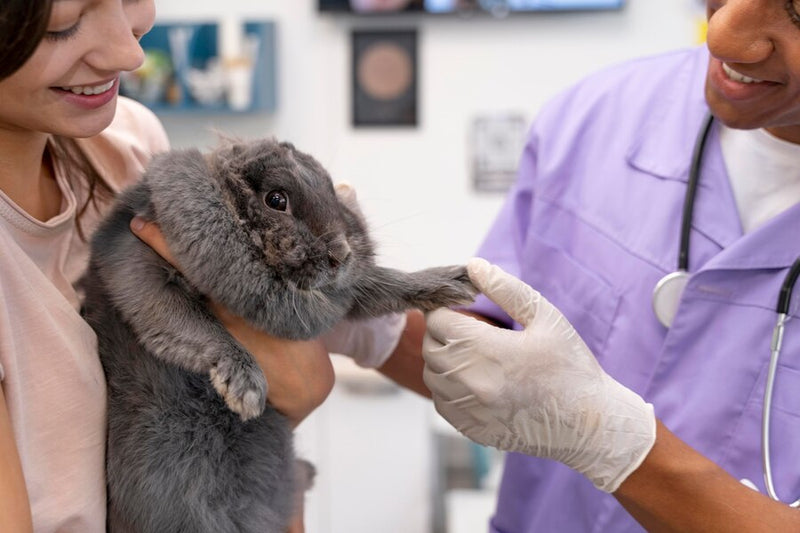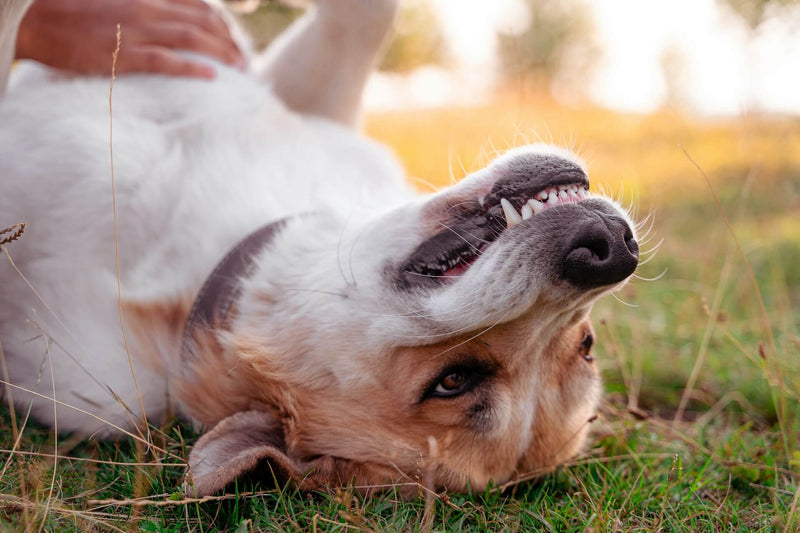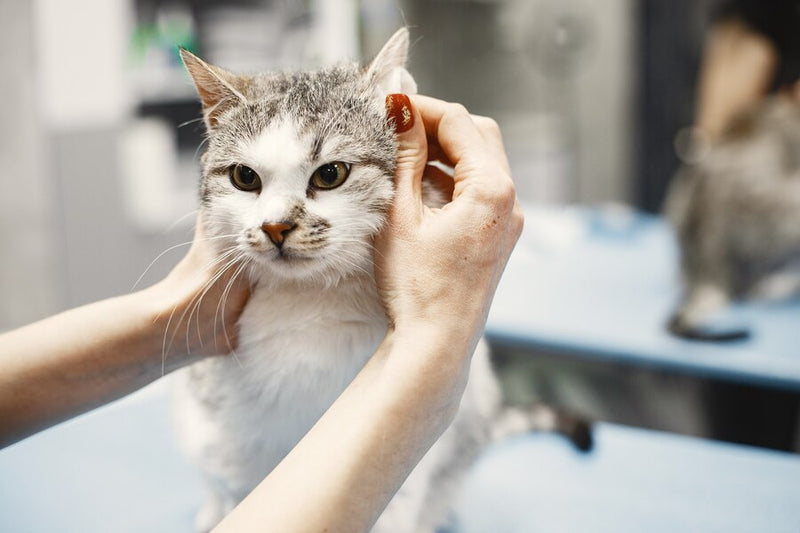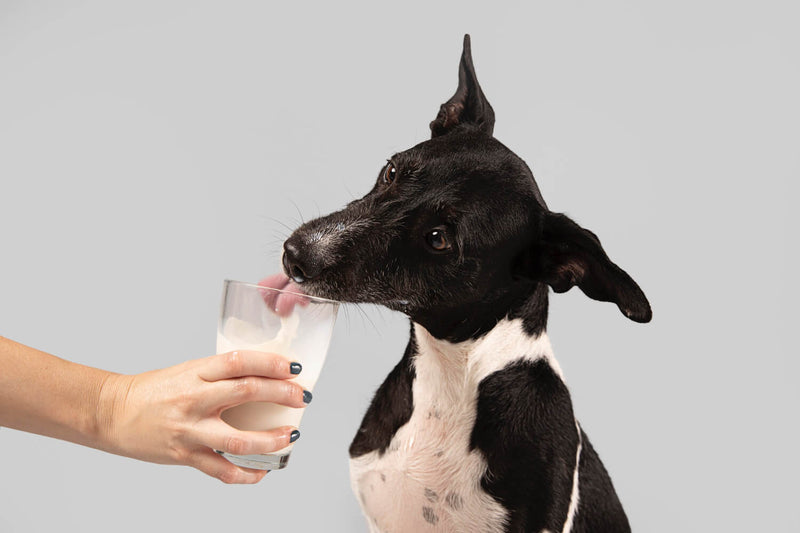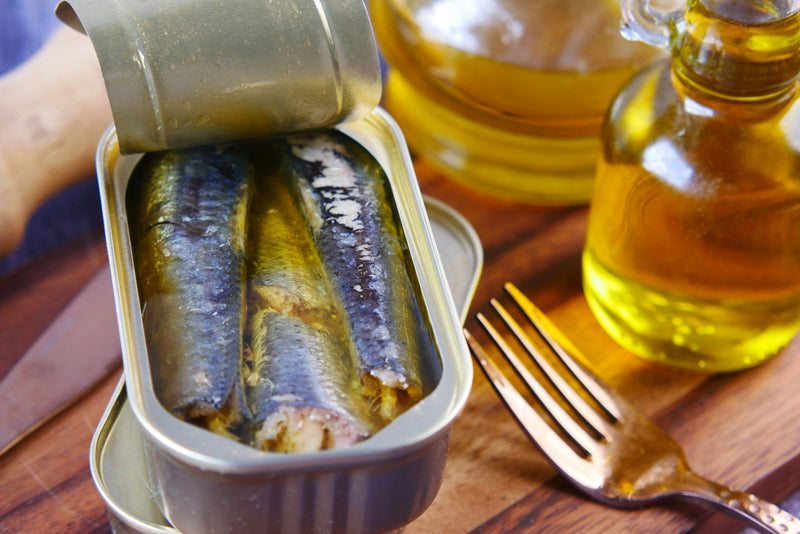
Welcome to Gritty Pet Co.
Your Canadian, specialty Pet Health & Wellness destination. 🇨🇦

Vet Reviewed & Approved
Dr. Ibrar A. is our veterinarian and a key member of our team. ✅
Taurine for cats is a key nutrient that cats can't produce enough of themselves, so they must get it from their diet. This tiny amino acid packs a powerful punch, and it is essential for their heart, vision, and even reproduction. Let's uncover why taurine is so vital for the well-being of our feline companions.
Key Takeaways
Understanding taurine is key to your cat’s health. Here’s what you need to know:
Taurine is Essential: Cats can’t produce enough taurine on their own, making it a must-have in their diet. Without it, they risk heart disease and vision loss. Ensure your cat’s food is rich in taurine from animal proteins.
Raw Diets Can Vary: While raw diets can be taurine-rich, quality and variety matter. Include taurine-rich protein, like hearts and other offal, and consult with your vet to avoid deficiencies.
Deficiency Symptoms: Watch for signs like lethargy, vision issues, and reproductive problems. Early detection can prevent serious health problems, so regular vet check-ups are crucial.
Beyond the Basics: A Deeper Look
Heart and Brain Health: Taurine regulates heart rhythm and might influence cognitive function. Ensuring sufficient intake could prevent heart disease and support brain health in aging cats.
Fat Digestion: Taurine aids in bile salt formation, crucial for fat absorption. Cats on specialized diets may require taurine supplements to maintain optimal digestion and nutrient absorption.
- Immune and Antioxidant Support: Taurine boosts the immune system and fights oxidative stress, helping your cat fend off illness and stay vital through all life stages.

Why Taurine for Cats is Vital
Taurine may sound like just another chemical compound, but for our feline friends, it's nothing short of essential. Found predominantly in animal-based proteins, taurine plays a pivotal role in maintaining various physiological functions crucial for a cat's well-being. Here's why taurine is vital for cats:
Heart Health : Taurine is vital for maintaining the integrity of a cat's heart. It regulates cardiac muscle function and electrical activity. Without enough taurine, cats are prone to dilated cardiomyopathy, a severe heart condition.
Vision : Found abundantly in the retina, taurine is critical for maintaining clear vision in cats. It supports retinal health and facilitates efficient transmission of visual signals to the brain. A taurine deficiency can lead to vision impairment or blindness.
Reproduction : Taurine is crucial for normal fetal development during pregnancy and reproductive health in both male and female cats. Insufficient taurine intake can result in infertility, miscarriage, or developmental issues in kittens.
Overall Well-being : Taurine contributes to the proper functioning of the nervous system, immune system, and fat metabolism in cats. It also acts as an antioxidant, protecting cells from damage. Overall, taurine promotes feline vitality and longevity.
Taurine Sufficiency in Raw Diets for Cats
Many cat owners opt for raw diets, believing them to be closer to what their feline companions would eat in the wild. While raw diets can offer various benefits, including higher taurine content compared to processed foods, it's essential to ensure these diets are nutritionally complete.
Raw diets mainly consist of animal-based proteins like chicken, turkey, and beef, which are rich in taurine. But the taurine content can vary based on factors like the quality of the meat and how it's handled and stored. Offering a variety of protein sources, including muscle meats, organs, and bones, helps ensure a balanced intake of taurine and other nutrients.
If you're making homemade raw diets for your cat, consulting with a veterinary nutritionist is a smart move. They can help create a diet plan that meets your cat's specific needs and includes enough taurine. Regularly monitoring your cat's health and considering taurine supplementation if needed can also help ensure they thrive on a raw diet. With careful attention to diet and health, raw feeding can be a nutritious and satisfying option for your feline friend.
Best Sources of Taurine
When it comes to sourcing taurine for your cat, both natural and commercial options exist. Here are some of the best sources of taurine for your feline friend:
Animal-Based Proteins : Meats such as chicken, turkey, beef, and fish are rich sources of taurine. Including these proteins in your cat's diet can help ensure they receive an adequate intake of taurine to support their health.
Organ Meats : Organs like heart and liver are particularly high in taurine. Adding small amounts of organ meats to your cat's meals can boost their taurine intake and provide essential nutrients for overall well-being.
Commercial Cat Foods : Many high-quality commercial cat foods are formulated to contain optimal levels of taurine to meet cats' nutritional needs. Look for cat foods labeled as "complete and balanced," as these are designed to provide all essential nutrients, including taurine.
Supplements : In some cases, taurine supplements may be recommended, especially for cats with specific health conditions or dietary deficiencies. Consult with your veterinarian before introducing supplements to your cat's diet, as excess taurine can also have adverse effects.
By incorporating these top sources of taurine into your cat's meals, you can help ensure they receive the essential nutrients they need to thrive and lead a healthy, happy life.

Advanced Nutritional Insights and Biochemical Role of Taurine
Taurine, often dubbed as the "wonder nutrient" for cats, serves a plethora of physiological functions crucial for their health and well-being. It serves several key functions including:
Heart Health : Regulates cardiac muscle activity, maintaining heart rhythm and strength.
Vision : Supports retinal function and protects against oxidative damage, preserving clear vision.
Bile Salt Formation : Essential for fat digestion and absorption in the small intestine.
Neurological Regulation : Modulates neurotransmitter activity, influencing neurological function and behavior.
Antioxidant Properties : Scavenges free radicals, protecting cells from oxidative stress.
Immune Support : Aids in immune function, assisting in the body's defence against infections.
Beyond its well-known roles in heart health and vision, taurine influences protein metabolism and energy production, optimizing cats' utilization of nutrients for growth and vitality. Additionally, emerging research suggests potential links between taurine and cognitive function in cats, highlighting its broader impact on overall well-being.
Taurine in Cat Life Stages
Taurine is super important for cats at every stage of life! Just like how humans need different foods as we grow older, cats have specific taurine needs based on their age. For kittens, who are busy growing and developing, they need extra taurine to help their little bodies grow strong and healthy. As they become adults, they still need taurine to keep their hearts, eyes, and bodies in top shape.
Senior cats might not absorb nutrients as well as they used to, so they might need a little extra taurine to account for age-related changes in metabolism and nutrient absorption. It's like giving them a boost to keep them feeling their best as they age gracefully.
FAQ
1. Why Is Taurine Crucial For My Cat's Health?
Taurine is essential for your cat’s heart, vision, and overall well-being. Unlike humans, cats can't produce enough taurine, so they rely on their diet to meet their needs. Without sufficient taurine, cats can develop serious conditions like heart disease and blindness. Ensure your cat’s diet is taurine-rich.
2. Can My Cat Get Enough Taurine From A Raw Diet?
A raw diet can be taurine-rich if it's balanced and includes a variety of meats, especially organ meats like hearts. However, taurine levels can vary, so it's wise to consult with a vet to ensure your cat is getting enough, possibly through supplementation.
3. What Are The Signs Of Taurine Deficiency In Cats?
Signs of taurine deficiency include dilated cardiomyopathy (heart disease), retinal degeneration (vision loss), and reproductive issues. If you notice symptoms like lethargy, vision problems, or weight loss, consult your vet immediately to adjust your cat's diet.
4. How Do I Know If My Cat’s Commercial Food Has Enough Taurine?
Look for cat foods labeled as "complete and balanced." These are formulated to meet all your cat's nutritional needs, including taurine. However, not all brands are equal, so choose high-quality options and check the ingredient list for taurine or taurine-rich sources like meat.
5. Should I Supplement Taurine If My Cat Is On A Special Diet?
If your cat is on a homemade or restricted diet, taurine supplementation may be necessary. Discuss with your vet before starting supplements to avoid over-supplementation, which can cause digestive issues. Your vet can recommend the right dosage tailored to your cat’s specific needs.
Top YouTube Videos on Taurine for Cats
1. Taurine for Cats: What Is It?
Why Watch : his video from Chewy breaks down the essential role of taurine in your cat’s diet, explaining why it's crucial for heart, vision, and reproductive health.
2. What is TAURINE and Why Do Cats NEED it?
Why Watch : This video dives into the importance of taurine in raw cat food, explaining why it’s vital to include in your cat’s diet.
Final Thoughts
Taurine isn't optional for cats—it's a must. Found in meats, especially organs, and in quality cat foods, it's vital for their heart, vision, and overall health. Make sure your cat gets enough taurine, and you'll help them live a long, happy life.

